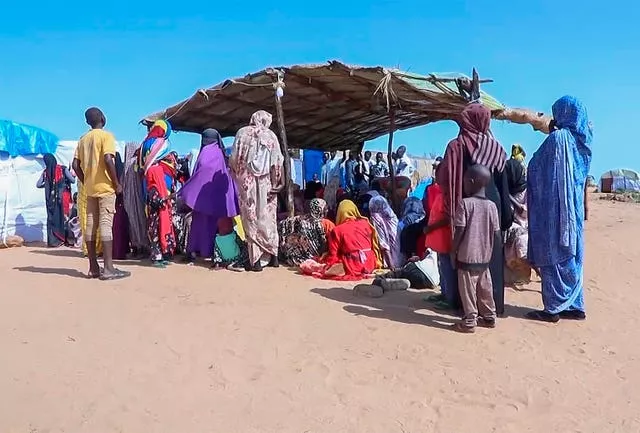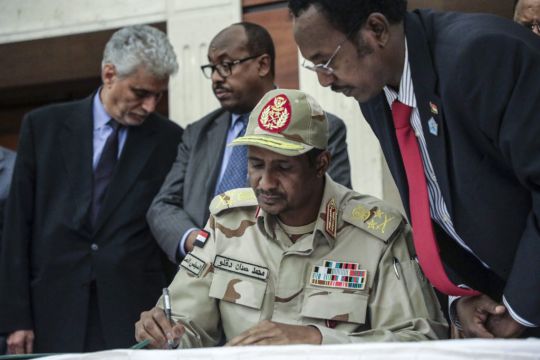Sudanese paramilitary leader General Mohammed Hamdan Dagalo said he was committed to a ceasefire to end the devastating war that has wrecked his country.
Gen Dagalo, leader of the Rapid Support Forces, was speaking following a meeting in Pretoria with South African President Cyril Ramaphosa.
He said he had briefed Mr Ramaphosa on the “considerable efforts taken to end this war”, but there has been no progress on proposed peace talks with Sudan military chief General Abdel-Fattah Burhan.
“I emphasised our unwavering commitment to cease hostilities,” said Gen Dagalo, who did not say if or when he would meet with his rival.

The warring generals agreed last month to a face-to-face meeting and to start talks over a possible ceasefire, according to the East African regional bloc IGAD, but no date or location for the talks have been announced.
During Thursday’s meeting, Mr Ramaphosa said he hoped there would be an “imminent face-to-face dialogue” between the general and called for an “immediate ceasefire,” his spokesperson Vincent Magwenya said.
Gen Dagalo met with Kenyan President William Ruto on Wednesday following visits to Uganda, Ethiopia and Djibouti.
Tensions between the former allies erupted into an all-out war in mid-April in the Sudanese capital, Khartoum and across the country.

The fighting has killed more than 12,000 people, according to the United Nations, while doctors and activists say the actual death toll is higher. More than seven million people have been forced to leave their homes.
Last month, UN undersecretary-general for humanitarian affairs Martin Griffiths said more than 500,000 people were forced to flee their homes in Jazeera province, which had become a safe haven for civilians after the RSF attacked and took its capital, Wad Medani.
The US State Department has said that both the RSF and the Sudanese military have committed war crimes or crimes against humanity during the nine-month conflict.
Mr Griffiths said nearly 25 million people across Sudan will need humanitarian assistance in 2024, “but the bleak reality is that intensifying hostilities are putting most of them beyond our reach.”







